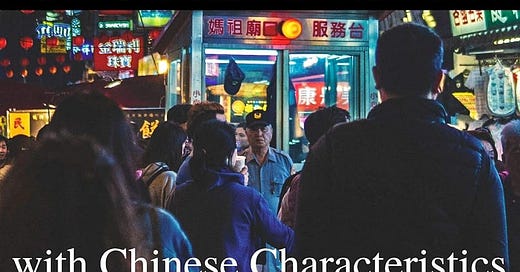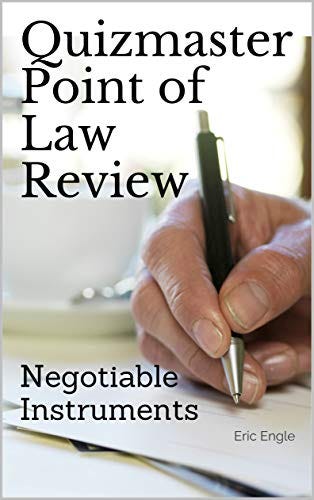Contents: Free eBook, Why OSINT, Ghost of Kissinger, Understanding American Power, Open Secrets, Learn Chinese!
Your free books follow, here is your first one, the other free ebooks follow essay article.
Download here, https://www.amazon.com/dp/B07MZZGV7C
Your book review is greatly appreciated.
WHY OSINT?
The increasing reliance on Open Source Intelligence (OSINT) analysis by traditional intelligence services like the CIA is a paradigm shift that acknowledges the changing landscape of information gathering and policy formation. Most relevant information to foreign policy, including national security information, can be obtained from public sources.
This stark reality that underscores the importance of OSINT.
In the age of the internet and social media, individuals and organizations frequently share information that can be critical for intelligence purposes.
People naturally seek fame and recognition, often leading them to disclose valuable details publicly. The adage, "Two can keep a secret if one of them is dead," attributed to Benjamin Franklin, highlights the rarity of true secrecy.
The natural tendency to share information, combined with the proliferation of online platforms, has created an ocean of publicly available data that can be leveraged for intelligence gathering. The communications revolution has exponentially increased the volume of available data. Intelligence agencies face the challenge of sifting through this "ocean of information" to extract actionable insights.
This is where OSINT comes in, providing a cost-effective and efficient means of gathering and analyzing information. OSINT leverages publicly available data that can be rapidly collected, processed, and analyzed using advanced algorithms and artificial intelligence. The CIA's public acknowledgment of the excellent work done by organizations like Bellingcat and their own limitations in terms of time and ability further underscores the value of OSINT.
Moreover, OSINT collaboration makes sense in a world that increasingly seeks collaboration over conflict. Foreign policy and intelligence analysis require expertise in various fields, including languages, geography, history, economics, religion, culture, and natural sciences. By leveraging the collective expertise of individuals from diverse backgrounds, with their expertise languages, geography, history, economics, religion, culture, and natural sciences, OSINT can provide a more comprehensive understanding of complex issues. This crowdsourcing approach taps into this wide range of expertise, providing a more comprehensive and nuanced understanding of global issues and can help identify patterns, trends, and insights that might be missed by traditional intelligence methods.
In an increasingly interconnected world, collaboration is generally preferred over conflict: OSINT fosters collaboration among the intelligence agencies, the private sector, and the public. By sharing information and insights, these entities can collectively enhance their understanding of global events and threats, leading to more effective policy-making. Result? Fewer conflicts, more production, peace and prosperity.
Traditional intelligence methods, such as espionage and covert operations, are resource-intensive and carry significant risks. OSINT, on the other hand, can be conducted with fewer resources and without the need for risky field operations. This makes it a cost-effective and safer alternative for gathering much critical information: Cheap, not easy.
Successful examples of OSINT in state-to-state relations include:
1. The use of social media analysis to track the spread of misinformation and propaganda during the 2016 US presidential election, which helped inform policy responses to Russian interference.
2. The employment of OSINT to monitor and analyze the activities of terrorist organizations, such as ISIS, which has enabled governments to disrupt their operations and counter their online presence.
3. The application of OSINT to track and analyze the spread of COVID-19, which has facilitated international cooperation and informed public health policy responses.
4. Tracking Russian Military Movements: Bellingcat, an independent investigative journalism group, has successfully used OSINT to track Russian military movements in Ukraine. By analyzing satellite images, social media posts, and other publicly available data, Bellingcat provided detailed reports on troop deployments and equipment transfers, significantly contributing to global awareness and policy responses.
5. North Korean Missile Tests: OSINT was instrumental in monitoring North Korean missile tests. Analysts have used satellite imagery, defector testimonies, and state media broadcasts to assess the capabilities and progress of North Korea's missile program. This information has been crucial for shaping international sanctions and diplomatic strategies.
6. Iranian Nuclear Program: OSINT has played a key role in monitoring Iran's nuclear activities. By analyzing open-source data such as satellite images of nuclear facilities, procurement patterns, and scientific publications, intelligence agencies have been able to track developments in Iran's nuclear program and inform international negotiations and agreements.
As the CIA's former Director, John Brennan, noted, "The CIA is not the only game in town when it comes to intelligence gathering... We need to be able to leverage the capabilities of others, including the private sector, academia, and other government agencies, to get the best possible intelligence." (1)
In an era of increasing complexity and interconnection, policymakers must recognize the value of OSINT and incorporate it into decision-making processes. By doing so, they can tap into collective wisdom, foster greater collaboration, and make more informed decisions that benefit national security. By acknowledging the limitations of traditional intelligence gathering and embracing the power of open source intelligence, governments can make more informed decisions that take into account the complexities of the modern world.
Reference: (1) Brennan, J. (2016). The Future of Intelligence. Harvard Law School National Security Journal.
Here, have another free eBook.
THE GHOST OF KISSINGER SPEAKS
The discourse on China's ascension to power is frequently obscured by misapprehensions and partialities. Some assert that the West ought to have adopted a more assertive stance against China's human rights violations, while others contend that engagement and economic cooperation were judicious strategies.
During the 1990s, the Bush administration embraced a pragmatic perspective, discerning that China's ongoing reform and stability were of paramount importance, transcending abstract ideals. This policy was driven by an imperative to avert a civil war or a ruthless party purge, which would have inflicted catastrophic consequences upon the Chinese populace.
However, numerous liberal capitalists of the era harbored the belief that China would inexorably evolve into a Western-style liberal democracy, characterized by multiple political parties, judicially enforced human rights, and individual freedoms. Their assumption appears inaccurate. China's distinct cultural and historical context does not conform to Western paradigms of governance.
It is imperative to acknowledge that China's historical narrative is replete with civil wars and famines, and the Communist Party's ability to preserve stability is a crucial element in averting further bloodshed. While this reality may diverge from Western values, it remains a fundamental truth that must be recognized. In retrospect, it is evident that the prudent approach taken, to prioritize stability and engagement over idealistic aspirations of democratization, was largely correct. China's capacity to foster economic growth and enhance the standard of living for its citizens has been pivotal in sustaining stability and forestalling yet another Chinese civil war and consequent famine. The PRC in China enjoys a dual legitimacy: preserving peace, building prosperity. It would be extremely unwise to try to destabilize it.
Ultimately, the West's strategy towards China should be informed by a pragmatic appreciation of China's unique circumstances, rather than by idealistic notions of democratization or human rights. This does not entail disregarding human rights abuses or condoning China's authoritarian regime but rather accepting that China's developmental trajectory will be shaped by its own history and culture.
Furthermore, it is pertinent to acknowledge the West's own imperfections regarding democracy and human rights, and the liberal internationalist approach has frequently been characterized by a paternalistic and interventionist disposition towards non-Western nations. This has precipitated calamitous outcomes, such as the Iraq War, and has compromised the credibility of Western democracies.
In sum, the debate concerning China's rise to power is complex and multifaceted, necessitating a nuanced and pragmatic approach that considers China's unique historical and cultural context. Instead of imposing Western governance models, the West should prioritize engaging with China and fostering cooperation and mutual understanding.
Another free eBook just for you!
Understanding American Power: Foundations & Principles
This is the first of a series of brief essays on the sources and structure of U.S. political and economic power.
The video essay in question, while well-crafted, exemplifies the pitfalls of wishful thinking and superficial analysis that often plague Western Marxist critiques of the United States. By failing to dig deeper into the historical origins, structural characteristics, and power dynamics of the American political system, the essayist neglects to consider the unique features that set the USA apart from other governments.
A more nuanced approach would involve comparing the USA to other nations with distinct political systems, such as fascist Germany, Stalin's USSR, Imperial Japan, or the British, French, or Belgian empires. Such a comparison would quickly reveal that the USA fares favorably in terms of its democratic institutions, protection of individual rights, and promotion of economic opportunities. This is not to say that the USA is without its flaws, but rather that its system is designed to mitigate the risks of extremism and promote a more inclusive and representative form of governance.
One key aspect that distinguishes the USA from other countries is it is not a party political state like Germany or China. Unlike many European nations, where political parties are often tightly defined and ideologically rigid, the USA's two-party system is characterized by loose affiliations and broad, inclusive ideologies. This is a deliberate design choice, intended to prevent the concentration of power and promote a more pragmatic, centrist approach to governance.
In the USA, political parties must appeal to a broad swath of voters, especially the politically uncommitted, in order to secure a majority vote. This necessitates a more moderate and compromising approach, as parties must balance the competing interests of their diverse constituencies. In contrast, many other countries operate under a "winner-takes-all" system, where political power is often synonymous with economic power, and parties are more ideologically rigid as a result.
The USA's founders sought to create a system that would separate religion from state and promote private industry over state enterprises. This approach was designed to foster a more dynamic and innovative economy, while also protecting individual freedoms and preventing the concentration of power. In contrast, many other governments are structured more like a family, with a strong central authority and a more limited role for private enterprise.
The USA's system is also distinct in its emphasis on limited government by consent. This means that power is deliberately distributed across multiple branches and levels of government, with checks and balances in place to prevent any one entity from dominating the others. This approach is designed to ensure that the government remains accountable to the people, and that power is exercised in a responsible and transparent manner.
The legitimacy of the USA's system is rooted in its ability to balance individual freedoms with collective well-being, and to promote economic opportunities while protecting social welfare. While the system is not perfect, and there are certainly areas for improvement, it is essential to recognize the unique strengths and characteristics that have contributed to its enduring success.
In conclusion, a more thorough and nuanced analysis of the USA's political system would reveal a complex and multifaceted entity that defies simplistic categorization. By acknowledging the historical and structural factors that shape the USA's system, we can better understand its strengths and weaknesses, and work together to build a better world for all.
Trump is a criminal. He Lied To You All.
Another Free eBook for you
Download here, you may write your book review here please.
Open Secrets:
In international relations, some truths are too sensitive to acknowledge publicly: they remain secrets for decades, or longer. One such secret is whether COVID-19 originated as a bioweapon that accidentally leaked from one of the two virology labs in Wuhan, China. Although the phrase "open secret" may not be a part of everyday English vocabulary, it aptly describes the tacit acknowledgment and explicit denial that have characterized China's response to the SARS-II and explains how governments deal with inconvenient truths, that would cause avoidable wars, with catastrophic casualties and much pointless destruction of wealth.
Officially, the Chinese government will never publicly admit that the virus was a bioweapon that accidentally leaked from a laboratory. Nonetheless, the writing is on the wall. Publicly, there is unyielding denial. Implicitly, privately, the signs are there for those who know where to look. The question is, who is willing to read between the lines to see the subtle signs?
Two Cover Ups:
1) In the aftermath of the pandemic's outbreak, local party leaders in Wuhan were desperate to maintain secrecy, especially about anything related to the military. They also wished to conceal the illness to paint a a rosy picture of the local economy during the crucial spring festival, a celebration quite similar to Christmas in its cultural importance, albeit with red envelopes of Christmas cash instead of stockings and boxes -- to advance their careers. Secrecy was especially desired because China was hosting the Trump administrations officials negotiating Sino-American terms of trade. Thus, local eladers prevented Beijing from knowing about the illness in Wuhan that fateful Autumn. Ironically, their first cover up backfired: their careers will likely never advance beyond the provincial level.
2) Once aware of the lab leak, the upper echelons of power in Beijing, including President Xi Jinping and his inner circle, were reportedly furious and swiftly devised an emergency plan to contain the crisis and cover up its actual origins. A swift and transparent revelation of the virus's origins could have fueled extremist narratives, such as those propagated by Falun Gong adherents and conspiracy theorists aligned with former President Donald Trump, leading to further chaos and instability. These factions thrive on sensationalist versions of events, and acknowledging the bioweapon theory could have escalated global tensions even further. We can see the wars in Ukraine and Palestine as warnings to us about the folly of rapid radical outraged action in the face of terrible tragedy.
Thus, a convenient, albeit implausible, explanation was promoted: a "wet market" and a nefarious "reservoir animal.". Despite extensive investigations, no such animal has ever been found. Nor will it be found. The notion of a "reservoir animal" being responsible for the pandemic has been a convenient scapegoat for the Chinese government, allowing them to reap trade benefits while deflecting accountability. The party state has skillfully exploited this narrative to gain economic leverage, refusing imports of frozen goods from various countries under the pretext of potential contamination with COVID-19, for example. This strategy allowed China to negotiate the pandemic's challenges while deflecting blame. Meanwhile, the search for a "reservoir animal" has become a wild goose chase, with no credible leads or conclusions in sight.
Going Forward from Here:
Deceptions of various kinds and conspiratorial tactics are not without precedent in international affairs: especially among communist parties, which are founded as secret rebel parties and thus conspiratorial in their origins. For example, the USSR has long been suspected of orchestrating President Kennedy's assassination and then perpetuating numerous conspiracy theories in its wake. Following the Bay of Pigs invasion, the Cuban Missile Crisis, and failed assassination attempts on Fidel Castro, such a Soviet subterfuge was almost to be expected. The USSR's actions contributed to a culture of mistrust and paranoia that persists to this day, most particularly in Russia itself.
The COVID-19 pandemic has ruthlessly exposed the lengths to which nations will go to protect their interests. Former President Trump's initial dismissal of the virus's severity and the widespread prioritization of economic gains over public health further exemplify this. The Trump administration's inability to take the situation seriously, coupled with the desire of various stakeholders to profit from the crisis, led to devastating consequences, including the loss of countless lives, particularly among the elderly: after rall, youth are not the command structure of any military
To conclude, the narrative surrounding COVID-19 exemplifies the complex interplay of secrecy, political maneuvering, and international power dynamics. In the post-pandemic world, understanding these undercurrents is crucial to accepting “ambiguity”. The “open secret” of the virus’s origins will never be officially confirmed, proven, or disproven. The truth is all too obvious — and all too dangerous.
“Some live in the clouds
some live on forest trails” - Sa Dingding, Upwards to the Moon
Learn French
LEARN CHINESE!
Chinese is beautiful and you are truly missing out on a wonderful world of culture friendships and opportunities whether in business, education, or politics. Chinese is NOT difficult! It IS different. All these books have extensive free previews and are front-loaded with need-to-know basics (Wegweiser). Mandarin Chinese is a critical needs language.
Donald Trump is a convicted criminal, a fraudster, and unfit to hold public office. He Lied to you. Download here, you may write your book review here.








